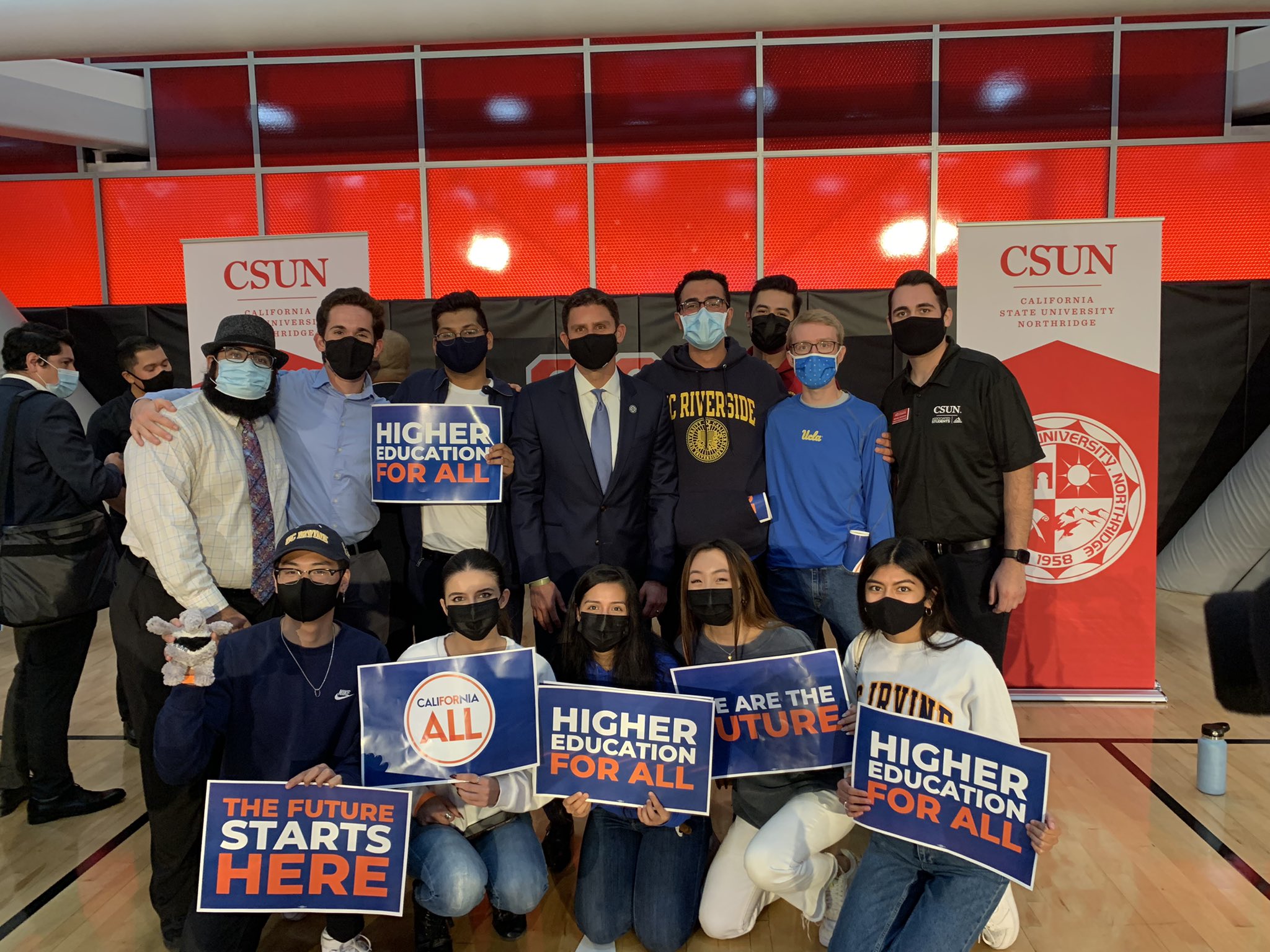On Oct. 4, Gov. Gavin Newsom signed into law Assembly Bill (AB) 396, which will help feed thousands of California students currently struggling with hunger and food insecurity.
Authored by Assemblymember Jesse Gabriel (D-Woodland Hills), the measure will require public colleges and universities to seek certification from the California Department of Social Services (CDSS) so that students enrolled in qualifying employment and training programs will now be able to access federally-funded CalFresh food benefits.
“It’s shameful that so many young people in California go to bed hungry at night,” said Assemblymember Jesse Gabriel. “Particularly with the COVID-19 pandemic exacerbating our student hunger crisis, it’s imperative that we leverage all available resources.”
AB 396 will expand access to CalFresh food benefits provided through the federal Supplemental Nutrition Assistance Program (SNAP). Currently, college students are ineligible for these benefits unless they are working at least 20 hours a week or fall within one of several enumerated exemptions.
AB 396 focuses on the Employment and Training (E&T) services program exemption, which allows students who participate in qualifying programs such as internships, apprenticeships, and on-the-job training to claim CalFresh benefits.
According to data from CDSS, a little over 250 E&T programs are currently approved under this exemption, despite the fact that data from the U.S. Department of Education suggests that there are over 9,000 potentially qualifying programs in the California Community College system alone.
“Assembly Bill 396 will streamline the process by which the California State University (CSU) certifies its academic programs to participate in the ‘employment and training’ student eligibility pathway for CalFresh benefits,” said CSU Chancellor Joseph I. Castro. “In doing so, it will help ensure that Cal State students are connected to much-needed CalFresh benefits—removing a barrier to success so that they can achieve their personal, academic, and career goals, as well as help California meet its future workforce needs.
Research has exposed a shockingly high prevalence of hunger and food insecurity on California’s college campuses. Nearly one in three California college students face food and housing insecurity according to a survey by the California Student Aid Commission. The COVID-19 pandemic has exacerbated the challenge, with a recent report showing that almost 3 out of every 5 students are experiencing basic needs insecurity during the pandemic.
“Students should have the freedom to be a student and focus on their education without the added stress of meeting their basic needs, yet the unfortunate reality is that food insecurity continues to impact too many college students in California,” said Yun (Raina) Zhao, UC Student Association Campaigns Chair and UC Berkeley student. “AB 396 is a necessary step to make it easier for students to meet CalFresh requirements and receive the resources they need, not only to be academically successful but also to have an
adequate standard of living.”







